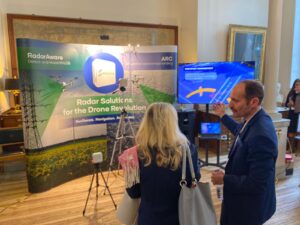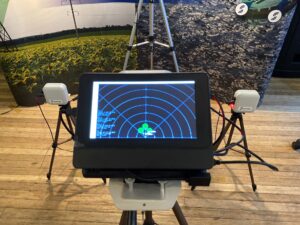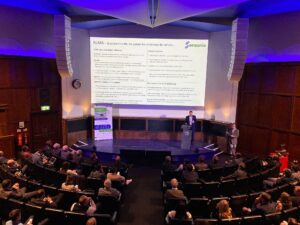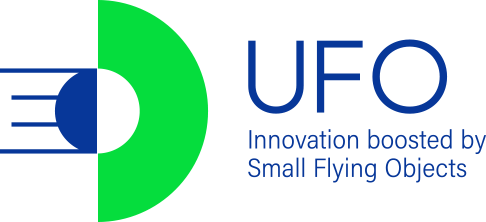 Sensoriis, a UK SME, have benefited from UFO, a European project, which aims to support SMEs developing innovative collaborative solutions in the field of Small Flying Objects, in the development of their novel ALMA technology.
Sensoriis, a UK SME, have benefited from UFO, a European project, which aims to support SMEs developing innovative collaborative solutions in the field of Small Flying Objects, in the development of their novel ALMA technology.
ALMA is an Auto Landing Marine system for unmanned Air Vehicles.
The ALMA technology was originally developed to aid the detection of illegal fishing activity over vast ocean areas using unmanned aerial systems (UAS). Currently, landing a UAS onto a moving coastguard or surveillance vessel requires a skilled operator. The ALMA project addresses this issue using Small Weight and Power (SWaP) radar and active beacons to land the UAS without the need for a skilled operator.
Introduced via the UFO project, British SME, Sensoriis were responsible for the radar design, and worked with Callen Lenz (UK) who built the drone and interfaced the radar to the controller, as well as conducting flight trials. Beia Consult from Romania, also introduced via an early UFO project match-making event, worked on the demonstration phase. The three SMEs worked collaboratively to overcome initial problems including radar hardware weight, radar firmware compatibility, temperature issues and to develop bespoke software and programme interfaces for the new technology.

Following extensive trials, testing and revisions, a patent application is now in progress, and the accuracy of the product has been refined extensively. Discussions and demonstrations have also taken place with potential end-user customers and Sensoriis are hopeful of developing a healthy order-book. Although the technology was originally designed for the Blue Growth sector for applications such as EEZ monitoring and wind farm inspections; there has already been growing interest in it for a wide range of other applications including in the offshore renewable energy sector, and for localised airspace surveillance and landing pad management at vertiports.
The new technology is already being marketed using the brand name, ARC-Landing via the Sensoriis website where an excellent video demonstrates the full capabilities of the technology.
 Commenting on the value of the UFO SME support, Dr Steve Clark, CEO and Founder of Sensoriis noted, “The UFO project ecosystem was instrumental in helping Sensoriis understand how our radar expertise could be best deployed in the maritime environment. UFO’s support was also most helpful in identifying and promoting partnerships within the maritime sector, and the background mentoring programme for business growth was also a key benefit of the UFO programme for our leadership team.”
Commenting on the value of the UFO SME support, Dr Steve Clark, CEO and Founder of Sensoriis noted, “The UFO project ecosystem was instrumental in helping Sensoriis understand how our radar expertise could be best deployed in the maritime environment. UFO’s support was also most helpful in identifying and promoting partnerships within the maritime sector, and the background mentoring programme for business growth was also a key benefit of the UFO programme for our leadership team.”
Dr Steve Clark continued, “UFO has provided us with an exciting opportunity to collaborate with new overseas partners, and to demonstrate to potential customers our novel radar technologies that enable auto-landing for drones in the maritime environment.”
Sensoriis and BEIA formed their partnership directly through the UFO matchmaking event which took place early in the project programme; their collaborative ALMA project was funded by a UFO Demonstration Voucher with a 10 month duration.
